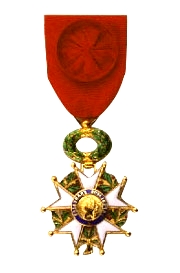 Image via Wikipedia
Image via WikipediaBy Vince
For quite some time now, a more compassionate policy response to asylum seekers has been undermined by a campaign of delegitimisation and dehumanisation. This has partly been achieved by a series of popular untruths captured into oft repeated slogans that have come to dominate the national discussion.
Oversimplified and misleading catch phrases such as ‘illegals’, ‘queue jumpers’, ‘proper channels’, ‘border security’ and ‘stop the boats’ have caused many Australians to question how compassionate we ought to be to those arriving on our shores. Even though these myths have been thoroughly debunked time and time again, they continue to persist and fuel our prejudices.
But what if we were to put our prejudices towards today’s boat arrivals aside for one moment and consider how we would judge the national debate if it were being conducted about Jewish refugees fleeing the rise of fascism and Nazism in Europe prior to World War II? How would we react to those who labelled Jewish refugees ‘illegals’ and questioned their failure to arrive in a queue-like orderly fashion?
The analogy becomes more apt when we acknowledge that we had similar prejudices towards Jewish refugees during their time of persecution. At the Evian Conference in France in 1938 which was established to deal with the Jewish refugee issue, Australia’s delegate, Thomas W. White, declared that we could not increase our meagre annual quota of 5000 refugees because “as we have no racial problem, we are not desirous of importing one.”
In an attempt to bypass our quota system, what if Jewish refugees had made it to Australia’s shores in large numbers and the government’s response was to detain them for months and years to the point where they began self-harming and suiciding? Would the appropriate response have been to focus on their illegality, their use of improper channels, the threats they might pose to border security or the most effective way to ‘stop the boats?’
Would it not be considered abhorrent if someone today were to retrospectively ask what we could have done to stop Jewish ‘boat people’ fleeing Nazi persecution and to trap them in places of desperation and destitution without adequate protection for their basic human rights? Unfortunately, we don’t have to imagine. Boats filled with Jewish refugees fleeing persecution were turned back by western countries with horrific consequences.
In hindsight, even raising such options, let alone having them dominate the national discussion, would no doubt be considered highly offensive and extremely distasteful. The reaction is instinctive because we can all connect with the Jewish experience of persecution. Yet today, because of the campaign to delegitimise the current wave of ‘boat people’, many Australians have become so detached from the reality of the asylum seeker experience that we cannot make the same connection with an Afghan fleeing the Taliban or an Iranian fleeing an oppressive regime.
Indeed, the chairman of the human rights arm of B’nai B’rith Australia, Anton Block, remarked in a press statement late last year that the official government practice of detaining women and children asylum seekers “revived memories of a darker period of Jewish history” and endorsed the call of the Executive Council of Australian Jewry to end mandatory detention for these vulnerable groups, a position also outlined in their policy platform.
Such analogies are relevant not because the comparisons of suffering are identical. It is both callous and futile to measure one person’s experience of persecution against another. The point is that whether it’s the Jewish refugees of the past or the vast majority of those arriving on Australia’s shores today, all faced persecution and all are deserving of our willingness and capacity to provide protection and the provision of basic human rights. An inability to recognise this fact reveals our own deep-seated prejudices.
Such prejudices, fuelled by misleading slogans, do more than just undermine a more compassionate response; they distract us from acknowledging our own contribution to the problem.
For example, calls for ‘orderly processing’ are framed as legitimate moral concerns for fair and equitable treatment. Yet despite the fact that there is no just and orderly queue, the question that’s never asked is where are we implying asylum seekers go to find protection or await a durable solution? Australia’s answer (along with many other developed nations) is anywhere but here. The result is that over 80 percent of the world’s refugees are hosted in developing nations, often for decades, with minimal support from rich countries. In reality, pushing asylum seekers back into the ‘queue’ results in shifting what is an international problem over to the third world.
Of course, like all slogans and stereotypes, there often exists an element of truth hidden within the gross generalisations. There are legitimate concerns to be addressed when processing undocumented arrivals such as conducting identity, security and health checks. Yet none of these concerns require indefinite and non-reviewable mandatory detention which inevitably results in horrific physical and mental health outcomes. There are legitimate concerns, but there are also choices.

























 Join our page
Join our page

